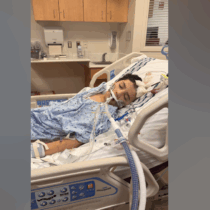
Five parents who urged members of the Board of Education (BOE) not to reduce its Darnestown Autism Learning Center learned Tuesday that Montgomery County Public Schools (MCPS) is changing the way it educates students with an autism diagnosis.
Currently, 60 students attend the Darnestown center. Beginning with the next school year, fewer students with autism will be sent to this center. However, all students requiring special services as required by their Individual Education Program will attend schools where their needs will be met.
Any student already attending Darnestown will continue there.
With fewer students at Darnestown, 6,125 paraeducators will be reassigned to different schools.
Because the number of students with an autistic diagnosis continues to grow, MCPS has decided to have similar programs in several schools. Students will be sent to schools closer to their home that do have a center for autism.
“It is our number one growing area of disability,” said Diana Wyles, assistant superintendent.
Any child with an IEP “will absolutely receive the services they are due, no matter the service, the need, or the location,” noted Chris Cram, director of MCPS communication in an email to MCM.
Eugene Kim, whose child attends the Darnestown center, said it “makes zero sense” for MCPS to commemorate April as National Autism Awareness Month and then remove paraeducators from that school.
Parent Silvia Hou questioned why parents “had no input” in this decision. She noted that some students with an autism diagnosis now will need one-on-one assistant if specialized paraeducators are removed.
Some of the parents expressed concern that students with an autism diagnosis now may be sent to programs that won’t lead to a diploma. But Wyles insisted that was not true.
“The Darnestown Learning Center is not closing. We are continuing to provide services” among 13 learning centers, all of which lead to the awarding of diplomas, she said.
In 2019, when the Darnestown Learning Center opened, there were 2,728 students in the district with an autism diagnosis. Now there are more than 4,000, Wyles said.


Comments are closed.